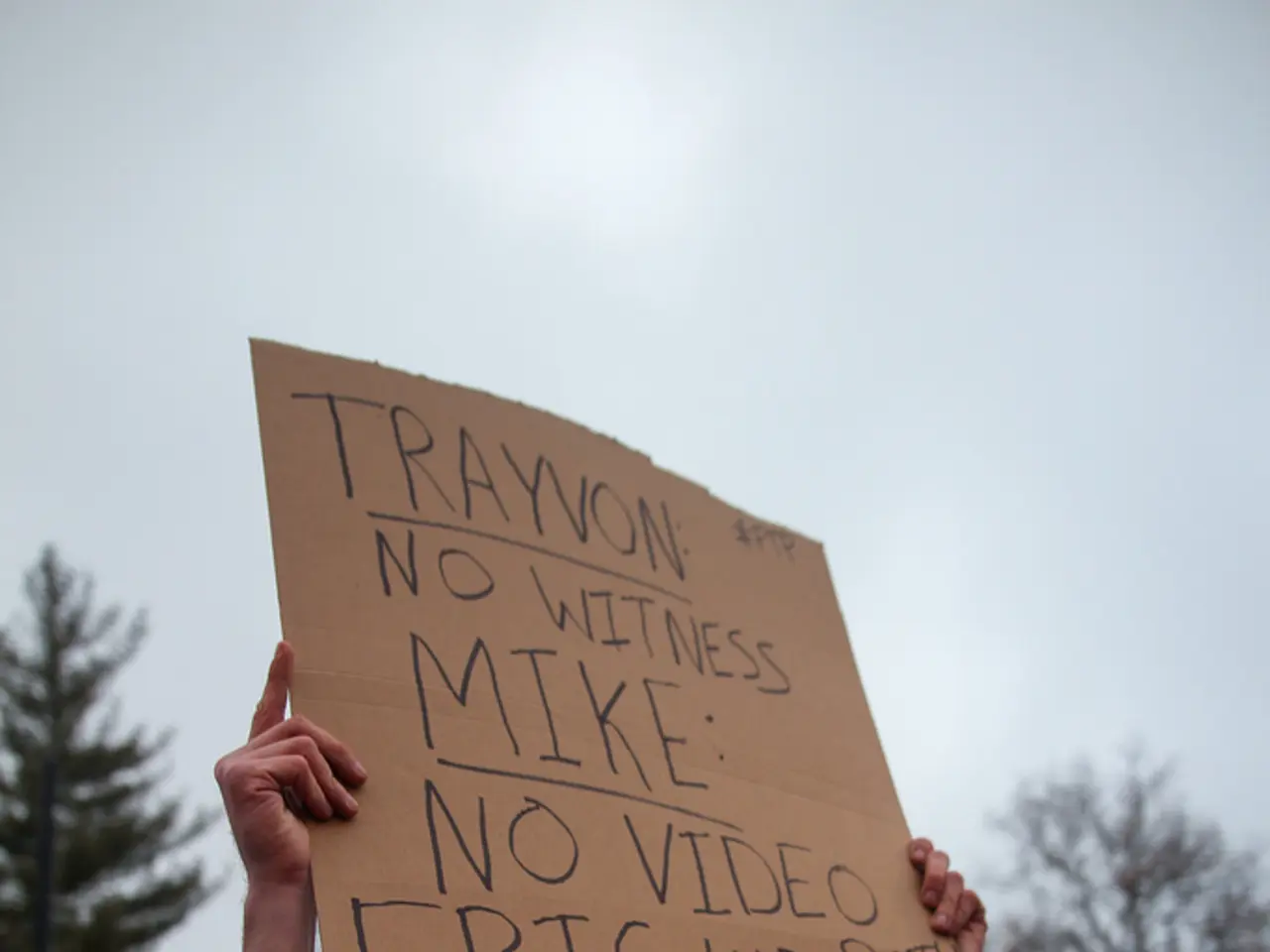Demonstration of Thousands in Tel Aviv Opposed to Israeli Government's Plan to Widen Conflict in Gaza
Stalled Ceasefire Negotiations and Intensifying Protests
As of mid-August 2025, negotiations for a ceasefire between Israel and Hamas remain stalled despite renewed diplomatic efforts. Egypt and Qatar have presented updated ceasefire proposals to Hamas, but an agreement has yet to be reached[2]. The breakdown of the previous ceasefire, which included hostage exchanges, occurred in March 2025 due to Israel's surprise airstrikes and Hamas's refusal to extend the truce and release hostages[1].
Israeli Prime Minister Netanyahu has insisted on strict conditions for ending the war, including disarming Hamas, full Israeli security control of Gaza, and removal of Hamas from power—demands rejected by Palestinians and criticized internationally[3][4].
Anti-war protests in Israel intensify
Meanwhile, public anti-war protests in Israel, including in Tel Aviv, have intensified. These protests reflect societal divisions on how to end the conflict and demonstrate growing pressure for a ceasefire and a deal for hostage release. Police arrested dozens of protesters who demanded negotiations and criticized Netanyahu's military approach as endangering hostages[4]. Protesters argue that continued military pressure will not secure hostages’ safe return but only risks their lives[4].
Gaza's Humanitarian Crisis and Hostage Crisis
The humanitarian situation in Gaza and the hostage crisis remain central obstacles. Gaza's civil defence agency reported that at least 37 people were killed by Israeli fire across the territory on Saturday, including 30 civilians waiting to collect aid[5]. Israel's offensive has reportedly killed more than 61,000 Palestinians, according to Gaza's health ministry[6]. Demonstrators displayed signs and pictures of hostages still being held in the Palestinian territory.
PA's Criticism and Netanyahu's Defiance
The Palestinian Authority (PA) does not have a presence in Hamas-run Gaza. However, PA President Mahmud Abbas emphasized the importance of enabling the State of Palestine to assume its full responsibilities in the Gaza Strip[7]. He stressed the need to stop the plan immediately[7]. Netanyahu has remained defiant over the decision to seize Gaza City, stating that the goal is not to occupy Gaza, but to free it from Hamas[8].
One of the principles included in the set of principles for ending the war in Gaza, which was adopted by Israel's security cabinet, was establishing a new "administration that is neither Hamas nor the Palestinian Authority"[9].
Criticism and Controversy
The decision has faced domestic and international criticism. On Friday, Netanyahu's security cabinet approved plans for a major operation to seize Gaza City. Thousands of people demonstrated in Tel Aviv on Saturday against the war in Gaza[10]. The Palestinian Authority (PA) criticized Israel's plan to expand operations in Gaza, calling it a "new crime."
In a social media post, Netanyahu stated that the goal is not to occupy Gaza, but to free it from Hamas. Hamas's 2023 attack on Israel resulted in the deaths of 1,219 people, according to an AFP tally based on official figures[11].
In summary:
- Ceasefire talks are currently deadlocked despite new proposals and mediation[2][3].
- Netanyahu’s government maintains hardline conditions that hinder a deal[3][4].
- Public anti-war protests in Israel are demanding a ceasefire and hostage deal, reflecting societal divisions on how to end the conflict[4].
- The humanitarian situation in Gaza and hostage crisis remain central obstacles.
This shows that while diplomatic efforts continue, the situation remains fragile and contentious, with little immediate prospect of a ceasefire agreement.
- The ongoing deadlock in ceasefire negotiations between Israel and Hamas, compounded by Israeli Prime Minister Netanyahu's strict conditions, has led to an increased focus on politics, general news, and war-and-conflicts, as evidenced by intensifying anti-war protests in Israel demanding a peaceful resolution to the hostage crisis.
- The humanitarian crisis and hostage crisis in Gaza further fuel the political debates surrounding war-and-conflicts, as demonstrators call for an end to the violence, urging Netanyahu to negotiate and prioritize the safe return of hostages over continued military action.






